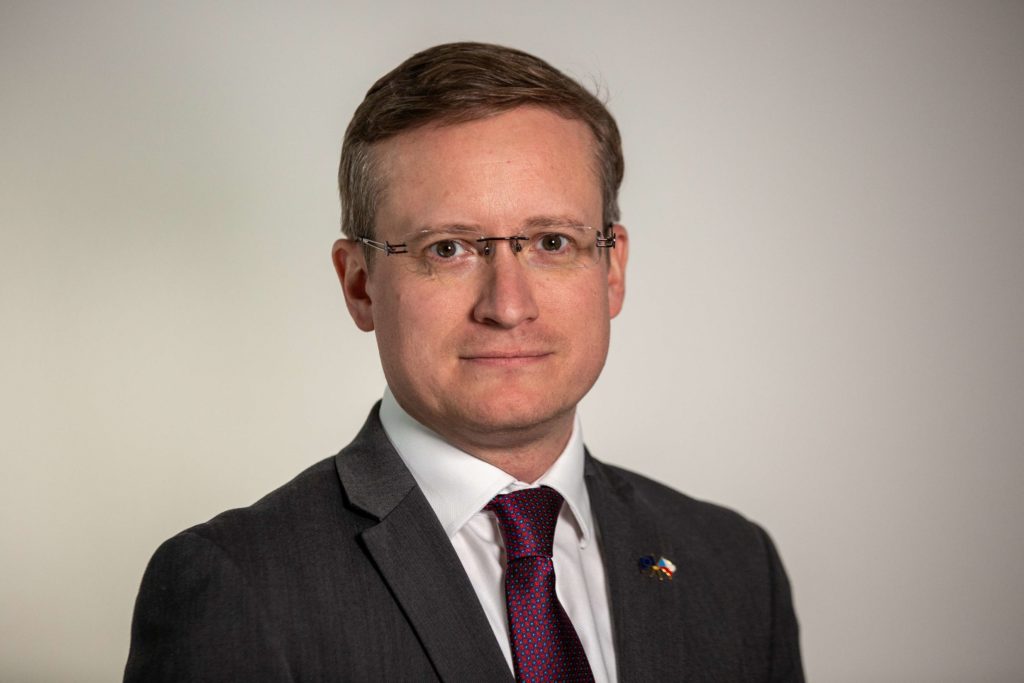Ondřej Kovařík is a Czech MEP for the Renew Europe Group. He is a member of ECON, TRAN, FISC and LIBE committees. His portfolio extends from transport and tourism to digital finance, support of SMEs and the use of new technologies. Ondřej is currently working on several files such as regulation of crypto currencies, the Social Climate Fund, Action plan to boost long distance and cross border passenger rail, access to finance for SMEs or the Updated New Industrial Strategy for Europe.
1. What value do you see in being co-chair of the Forum for Mobility and Society?
I highly appreciate the work of the Forum. It is an excellent platform for discussions on topical issues, bringing together policy makers, industry, associations and other relevant stakeholders. It provides opportunities to network and connect with relevant stakeholders. For me, as a Member of the European Parliament, I appreciate being able to exchange with experts and further explore public policy initiatives and regulatory work.
2. How do you see the transport sector evolving in the near future?
The future of transportation will involve digitalisation, smarter use of energy and modes of transport as well as new technological infrastructure to support these mobility innovations. Common themes will also be security and safety, sustainability and multimodality.
3. Do you see the mobility sector as a key player to achieve climate neutrality in Europe?
Indeed, improvement of the quality and quantity of mobility services is one of the most efficient ways of reducing emissions. In the transport sector, each mode will go through transformations aimed at stronger and more sustainable performances. This will also require more investment to boost innovation and the uptake of new technologies.
4. You hosted your first event on the Euro 7 regulation as co-chair of the forum last December; what are you most looking forward to in future events?
I am looking forward to hearing all the views from speakers and participants; meeting new people, creating connections and bringing broader discussions on the future of mobility in Europe. Particularly after the pandemic era, it brings real benefits to be able to meet and exchange our opinions in person once again. I am also looking forward to co-hosting the event on ‘Europe on the Move.’ This event will open the debate on how legislators and industry can cooperate and bring improving transport safety and efficiency.
5. With your experience as MEP, how do you think dialogue helps improve understanding and collaboration?
Dialogue is, in my view, an inherent part of being an MEP. Dialogues always bring better understanding to each party and engage learning and ideas through an open exchange of perspectives.
6. What do you hope the Forum for Mobility and Society can achieve in the coming years?
The Forum for Mobility and Society can boost networks and help new participants to be heard. The Forum for Mobility and Society can collect the most important data and facilitate discussions between individual representatives of industry and members and aide them to find the best ways how to support current issues of transport (i.e. sustainability, resilience, smart modes, etc).
About the Forum for Mobility and Society
Since 1999, the Forum for Mobility and Society (FMS) brings together the transport and mobility community to debate, draw long-term perspectives and develop visions for tomorrow’s mobility.
The FMS gathers Europe’s key institutional actors including Members of the European Parliament, representatives from the European Commission, industry experts and society at large. It does not seek to give a definitive outlook on a particular topic but examines current debates on mobility issues from a variety of perspectives so that new solutions may be found.
